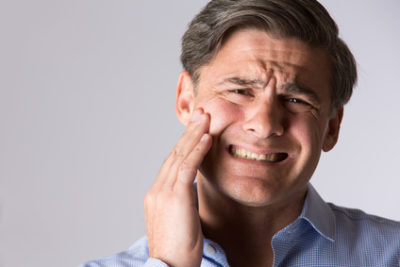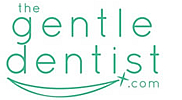By: Jessica Wendt, RDH
 Do you wake up frequently with headaches? Does your jaw click or pop when you open wide or are chewing? Do you have muscle tension in your temple region or in your cheek muscles? If you answered yes to one or all of these questions, then you may be clenching or grinding your teeth. Bruxism, which is considered excessive teeth grinding and/or jaw clenching, is rather common and affects up to 30-40 million Americans. Teeth grinding can occur at night during sleep or during the day, or both. Bruxism can be something that is done temporarily during a stressful season in life. However, long-term bruxism that is a habit can be symptomatic and negatively affect dental health.
Do you wake up frequently with headaches? Does your jaw click or pop when you open wide or are chewing? Do you have muscle tension in your temple region or in your cheek muscles? If you answered yes to one or all of these questions, then you may be clenching or grinding your teeth. Bruxism, which is considered excessive teeth grinding and/or jaw clenching, is rather common and affects up to 30-40 million Americans. Teeth grinding can occur at night during sleep or during the day, or both. Bruxism can be something that is done temporarily during a stressful season in life. However, long-term bruxism that is a habit can be symptomatic and negatively affect dental health.
The cause of bruxism can be due to many factors. It could just simply be a habit as some dental professionals see it as. It could also be caused by stress, anxiety, or anger. When the teeth and jaw do not line up properly, this can trigger teeth grinding as well. Rarely, it can be caused by a side effect from certain depression medications or from an uncommon disease affecting the nerves and muscles in the face. Smoking, heavy alcohol use, caffeine, and sleep disorders such as sleep apnea may also contribute to grinding.
No matter the cause, excessive grinding and clenching can cause uncomfortable symptoms. The most common symptom of bruxism is headache. The headache is usually on the sides of the forehead in the temple region but it can also mimic a tension headache. According to Colgate, other symptoms include tight or painful jaw muscles, contractions in the muscles, ear pain, long lasting pain in the face, and clicking or popping in the jaw joint.
Dentally, there can be damage to teeth and broken fillings from the excessive force being applied to them. Your dentist may notice an enlargement in your facial muscles. (Dr. Antolak always likes to reference the former Detroit Tiger, Plácido Polanco, when he was up at bat due to his bulging cheeks!) If you feel some of these symptoms, but want to confirm that you are in fact grinding, it is beneficial to ask your spouse or someone you share a room with if they hear a teeth grinding or chattering sound when you sleep at night. Often those who grind their teeth may have dreams that their teeth are falling out or breaking.
Bruxism can be treated to help lessen symptoms. It is always important to minimize stress and anxiety as much as possible when dealing with teeth grinding and clenching. Your dentist can also fabricate a custom-fit mouth guard for you that will help to take pressure off of your jaw joint, and it serves to protect your teeth from grinding on each other as well. If your bite is misaligned, your dentist can perform a bite adjustment procedure where microns are taken away from your teeth so that they come together in harmony.
With advances in technology, a 3-dimensional scanner called cone beam computed tomography (CBCT) could be helpful in diagnosing jaw joint disorders. According to Hubar and Caballero in Decisions in Dentistry, jaw joint disorders may be related to bone changes in the jaw joint itself. CBCT scans will help reveal degenerative changes in this region. We at The Gentle Dentist in Shelby Township have this 3-dimensional scanner to better serve its patients. Dr. Antolak will be attending a dental course in Orlando this April on CBCT scans and will be learning how to better read and understand scans of the jaw joint and airway.
If you have any of these issues with your jaw please give us a call and we can recommend treatment and behavioral modification. The technology is useless unless the dental team knows how to treat or recommend care for you. This is a complex diagnosis and treatment can be complex.
If you want to learn more, please call us at 586-247-3500 or visit our website at www.TheGentleDentist.com. Also, a reminder that we are still running our Smiles for Life promotion where you can professionally whiten your teeth and all proceeds go to charity. Call today to schedule!
